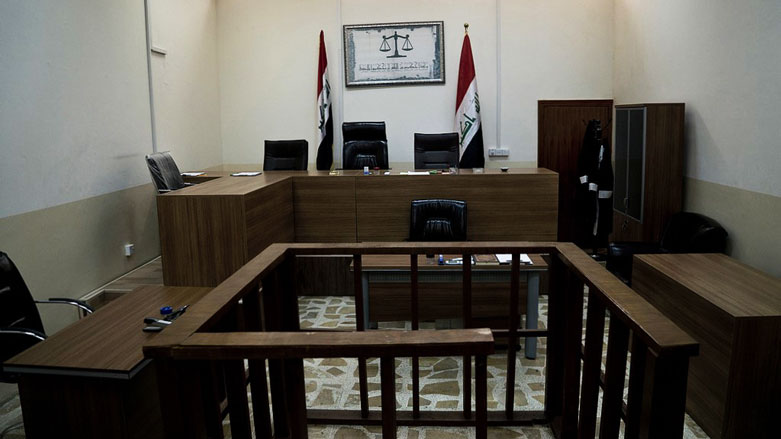Iraqi judges 'routinely' ignore credible claims of torture: Report

ERBIL (Kurdistan 24) – Human Rights Watch (HRW) said on Tuesday that Iraqi judges frequently disregard allegations of torture by security forces and convict suspects based on confessions that are credibly claimed to be a result of such abuse.
“Torture is rampant in Iraq’s justice system, yet judges lack instructions for responding to torture allegations,” said Lama Fakih, deputy Middle East director at Human Rights Watch.
Defendants, she said, "won’t be able to get a fair trial so long as the security forces can freely torture people into confessing.”
Concern around the use of torture by Iraqi security forces has increased considerably since the government’s mass arrests of thousands of Islamic State (IS) suspects. Although Iraq is a party to the United Nations Convention against Torture, it has no laws or guidelines directing judicial action when defendants claim torture or other mistreatment has occurred.
For the report, HRW reviewed files of 30 cases tried by Baghdad courts between 2009 and 2018 in which defendants alleged torture, and in June and July 2018, sat in on 18 felony trials of IS suspects in Baghdad.
All of the cases but one were brought under Iraq’s counterterrorism law, which can carry a death sentence. In 22 of the cases looked at, the report read, judges refused to respond in any way to the allegations of torture. In several cases, the judge ordered a forensic medical examination and found signs of torture, but did not necessarily order a retrial or investigation and prosecution of the abusive officers.
In 2014, the UN Assistance Mission for Iraq (UNAMI) reported that “judges regularly fail to take any action when defendants raised allegations before the court that they had been subjected to torture in order to force confessions in relation to the crimes for which they were standing trial.”
According to a defense lawyer HRW spoke to, a suspect was taken to Muthanna Airport Prison in Baghdad and later confessed because of torture which included electric shocks to his penis. After, he was brought before a judge at Baghdad’s Central Criminal Court.
"I got the judge to order a forensic report, which confirmed torture. I told the judge that because my client was tortured he should get a retrial. My client told the judge he was innocent. Before I knew it, the judge filed a complaint against me for 'harassment of the court and interfering in the court’s work' and hospitalized me for two days before releasing me without charge. In the meantime, he sentenced my client to death."
Multiple lawyers told HRW that they have to request access to clients' documents from an investigative judge. When such access is granted, it is usually only for a limited period of time. The lawyers said that they are generally only able to obtain copies of key documents needed to mount a defense by being “well connected or paying a bribe,” as one put it.
On July 22, HRW claimed that Iraq’s National Security Service (NSS), which reports to Prime Minister Haider al-Abadi, was holding more than 400 detainees in a detention facility in eastern Mosul despite not having a clear mandate to do so.
